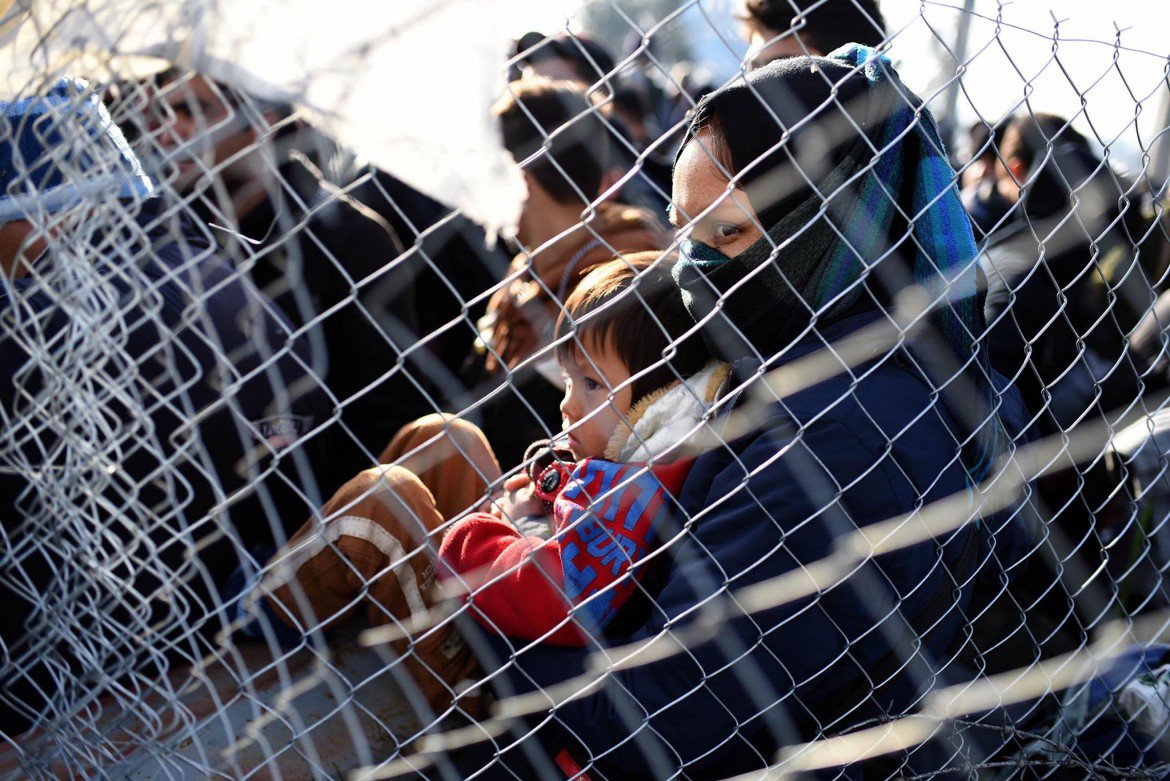Analysis
The Schengen could collapse in 10 days
The European Union is on the brink, and its migration commissioner warned that if there’s not a coordinated European solution by March 7, “the whole system will completely break down.”

As the European Union groans under the migrant crisis, all you hear from Germany is a loud silence. So much so that migration commissioner Dimitris Avramopoulos warned Thursday in Brussels that, “In the next 10 days we need tangible and clear results on the ground otherwise there is the risk the whole system will completely break down.”
What Europe needs are tangible results from the meeting with Turkish Prime Minister Ahmet Davutoglu on March 7, what European Commission President Jean-Claude Juncker called a Schengen stress test. But it’s Angela Merkel who’s betting all her chips on No. 7 — in worried silence.
There’s little for her to say. Berlin is under attack from Austria, the leader of a newborn Balkan bloc, and Hungary, leading the four Visegrad Group countries, over an open-door refugee policy Merkel inaugurated in November that has been more seldom put to practice.
On Thursday, the day the European Justice and Home Affairs Council held further meetings on migrants, Hungarian Minister Viktor Orban lashed out at the German policy in an interview with the German right-wing daily Bild. Orban prefers walls and has already said he intends to put immigrant quotas to referendum, a move that would have no concrete effects on decisions in Brussels.
To Austria, Avramopoulos stressed that “lonely initiatives do not lead anywhere.” Despite the scoldings, Austria is continuing its initiative to bring the 10 countries of the Balkan route together into separate, regional coordination against Germany’s position.
Vienna’s 29-year-old foreign minister, Sebastian Kurz, said that Europe should “abandon this goal of allowing unlimited numbers,” and his colleague, Interior Minister Johanna Mikl-Leitner, has raised the possibility of throwing Greece out of the Schengen area “if it is not able to protect” the external borders.
Merkel is also taking flak from inside her own cabinet. Interior Minister Thomas de Maizière, the most critical of his boss, said, “If a solution by the 7th of March is not possible, there have to be other European and coordinated measures.” The German government fears the arrival of an additional 3.5 million migrants to Europe by 2020.
The European Union, then, is in the hands of Turkey, which, by virtue of the €3.3 billion promised is supposed — but does not know how — to stop the flow. On Thursday, during the meeting of the E.U.’s 28 interior ministers, their Turkish counterpart was invited as a listener for the first time, to reaffirm the country’s strategic role in saving Europe from its inability to distribute refugees among its members. (UNHCR, the U.N. refugee agency, continues to point to resettlement quotas as a solution, along with safe humanitarian corridors.)
Orban says giving this role to President Recep Tayyip Erdogan is dangerous, and “an illusion.” To de Maizière, there’s “still hope.” The Dutch security and justice secretary Klaas Kijkhoff (the Netherlands has the E.U. presidency) wants to make one last appeal before the summer. Following news that seven countries had temporarily instituted border controls, Luxembourg Minister Jean Asselborn said, “We are heading into anarchy. Our credibility is in doubt, and that is very bad for Schengen and the European Union.”
The strengthening of the Turkish “plug” was expected; so was the use of NATO. NATO members met Thursday to agree on operations against migrant smugglers in the Aegean Sea, with a goal of being operational by March 7. Given the historical tensions between Greece and Turkey, the intervention of NATO ships, along with Frontex, could facilitate the recovery of survivors. Meeting into the night, the sides discussed how soldiers would intervene without crossing territorial waters and return survivors to the country they came from, namely Turkey.
But NATO Secretary General Jens Stoltenberg made clear that “NATO’s task is not to turn back the boats.” They’ll only take action to rescue vessels in emergencies.
Originally published at http://ilmanifesto.info/dieci-giorni-al-collasso-di-schengen/ on 2016-02-26
